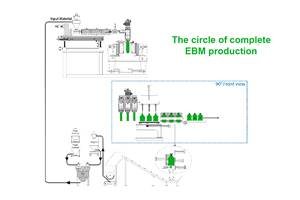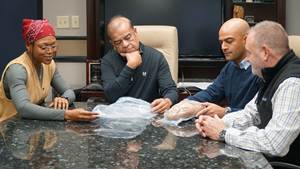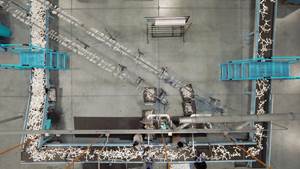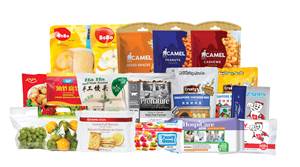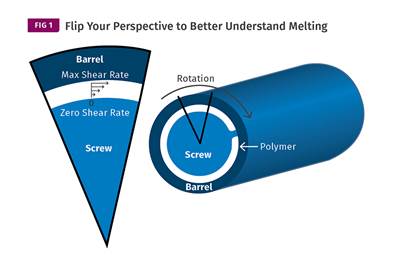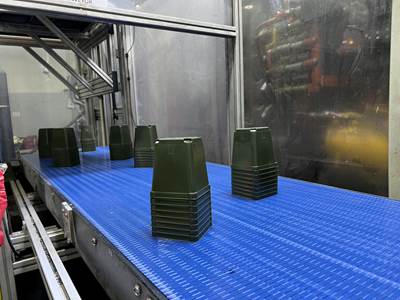Plastic Bottle Recycling Campaign Reports Tangible Results
The campaign in North and South Carolina debuted with a 2% increase in tons of all types of plastic bottles sold by local recycling processors from March to May 2017.
We all know the power of marketing and advertising when it comes to B2C-type products but what about for a “call to action?” such as recycling? Well, according to the Carolina Plastics Recycling Council (CPRC) in the Raleigh Durham Triangle region, such a call can make a difference.
Its campaign “Your Bottle Means Jobs” works to get more bottles in recycling bins in North and South Carolina. The campaign completed its successful debut, fueling a 2% increase in tons of all types of plastic bottles sold by local recycling processors during March through May 2017 when compared to the same period in 2016.
Area recycling programs reported no other major changes during that time period, so campaign leaders Chantal Fryer, director of recycling market development at the SC Department of Commerce and Blair Pollock with Orange County, N.C., say the outreach campaign had considerable regional impact.
If each household in the Carolinas increased its plastic bottle recycling by just two bottles a week, that simple act could create 300 new jobs in the two-state region.
The Your Bottle Means Jobs campaign was financed by a unique partnership of industry, recycling-oriented trade associations and local governments including Raleigh, Wake County and Orange County. Using billboards, radio, online ads, social marketing pledges and events, the campaign’s call to action for the region is that if each household in the Carolinas increased its plastic bottle recycling by just two bottles a week, that simple act could create 300 new jobs in the two-state region.
The campaign estimates that in one year, two more bottles a week recycled per household would yield 30,000 tons of additional bottles, avoiding more than $1.3 million in landfill disposal costs and creating local jobs in the process. Campaign leader Blair Pollock said, “While North Carolinians throw out more than 70% of the plastic bottles we use, our local industries import recycled bottles from other states as well abroad to meet their manufacturing demands. This campaign points us in a new direction, fusing the environmental and economic benefits of recycling.”
The equivalent of 520,000 PET and HDPE bottles were reclaimed and can be recycled into new products like t-shirts, textiles, plastic pipe and other goods produced in the Carolinas.
To rollout the campaign, the CPRC conducted a training session on the campaign and offered local leaders a toolkit with brochures and posters, items made from recycled bottles, and social media as part of the effort incentivize participation. Prizes such as a $500 gift card, a beach vacation and two recycled content gift baskets were offered to those who pledged to recycle. In addition to the more than 800 recycling pledges received to recycle two more bottles at home, on-the-go and at work, there were a million online Your Bottle Means Jobs ad views and 4 million billboard views.
YBMJ campaign champion Chantal Fryer said, “We are pleased to see a 2% increase in the plastic bottles recycled over the previous year—from 1323 tons in 2016 to 1349 tons in 2017. This is the equivalent of over 520,000 PET and HDPE bottles that can be recycled into new products like t-shirts, textiles, plastic pipe and other goods produced in the Carolinas. I’m excited to see the growth of the recycling and potential jobs as a result of the campaign.” Alan Goldman of Southeast Grinding, stated, “Our company was proud to be a part of this innovative campaign to increase plastic bottle recovery and looks forward to celebrating future successes as the Your Bottle Means Jobs campaign expands throughout the Carolinas.”
Another interesting component: Columbia, SC, a city that did not have the Your Bottle Means Jobs campaign in that same period, reported a 12% (yikes) decrease in bottle sales year-over-year. The City of Columbia had already completed residential recycling cart distribution and had no major program changes during the campaign timeline.
Patrick MacDonald, manager of the Sonoco recycling processing plant in Raleigh, N.C. that handles many of the region’s bottles, said, “Our company recognized real value in this promotional approach from the increase in bottle sales. Even with bottle prices low, we can make up some of that difference with the increase in volume. We know there are many more plastic bottles that can be easily recovered. If everyone does two more bottles a week, the impact will be enormous, good for the earth, good for our community and our company.”
Related Content
Get Color Changes Right In Extrusion Blow Molding
Follow these best practices to minimize loss of time, material and labor during color changes in molding containers from bottles to jerrycans. The authors explore what this means for each step of the process, from raw-material infeed to handling and reprocessing tails and trim.
Read MoreBreaking the Barrier: An Emerging Force in 9-Layer Film Packaging
Hamilton Plastics taps into its 30-plus years of know-how in high-barrier films by bringing novel, custom-engineered, nine-layer structures resulting from the investment in two new lines.
Read MoreReversing Logistics for Plastic Film Recycling
Learn how Mainetti built a circular supply chain for clear film packaging.
Read MoreFlexible-Film Processor Optimizes All-PE Food Packaging
Tobe Packaging’s breakthrough was to create its Ecolefin PE multilayer film that could be applied with a specialized barrier coating.
Read MoreRead Next
How Polymer Melts in Single-Screw Extruders
Understanding how polymer melts in a single-screw extruder could help you optimize your screw design to eliminate defect-causing solid polymer fragments.
Read MoreUnderstanding Melting in Single-Screw Extruders
You can better visualize the melting process by “flipping” the observation point so that the barrel appears to be turning clockwise around a stationary screw.
Read MoreProcessor Turns to AI to Help Keep Machines Humming
At captive processor McConkey, a new generation of artificial intelligence models, highlighted by ChatGPT, is helping it wade through the shortage of skilled labor and keep its production lines churning out good parts.
Read More



















